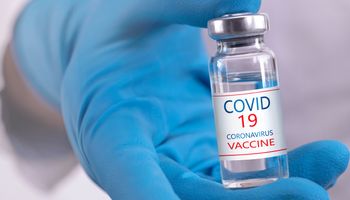Bad past for omega-3:
Already in the past, omega-3 fatty acids were "notsignificantly effective" for the European Medicines Agency (EMA) - in March 2019, the agency renewed the negative verdict: drugs containing omega-3 fatty acids do not prevent further heart disease after a heart attack. According to the EMA, such drugs should no longer be used in secondary prevention.
Study cancelled?
The STRENGTH study, published in December 2020, is an example of the non-significant efficacy of the active ingredient eicosapentaenoic acid in omega-3 fatty acids. This study of cardiovascular risk patients was terminated because the inclusion of eicosapentaenoic acid ethyl ester and docosapentaenoic acid ( in the preparation Epanova) failed to achieve benefits for the subjects.
REDUCE-IT study:
However, the so-called REDUCE-IT study did report a positive effect. This randomized, double-blind, placebo-controlled phase 3 study from 2019 examined 8179 patients for this purpose. These had to be at least 45 years old with confirmed cardiovascular disease or 50 years and older if they were diabetic with at least one other risk factor. Other inclusion criteria were an LDL cholesterol level of 41 to 100 mg/dl and stable statin therapy of at least four weeks before study entry. Patients with heart failure, active severe liver disease, a blood glucose level greater than 10% (normal value: less than 7.5%), acute or chronic pancreatitis, or allergy to fish were excluded from the study. The study participants were thereby classified according to medication use, cardiovascular risk profile and region. They received daily:
- 4 g of icosapent-ethyl (Vascepa, an EPA ethyl ester) with statins (i.e., cholesterol-lowering drugs).
- Placebo (mineral oil capsules) with statins.
According to the results of the study, a daily dose of 4 g of icosapent-ethyl reduced serious cardiovascular events and improved the cholesterol profile in patients with dyslipidemia or diabetes mellitus. In the US, the drug Vascepahas already been approved by the FDA in December 2019.
Approval recommendation also from EMA:
The EMA also published a recommendation for approval of icosapent-ethyl with the brand name Vazkepa on January 29, 2021. In this context, the drug is to be indicated in the EU for the risk reduction of cardiovascular events in adults treated with statins who are at high cardiovascular risk and have elevated triglyceride levels of 150 mg/dl or more (i.e. chemical group: esters). For this purpose, patients should have cardiovascular disease or diabetes mellitus with at least one other cardiovascular risk factor. Consequently, the marketing authorization application for Vazkepa in the EU was submitted by Amarin Pharmaceuticals Ireland Limited, the sponsor of the REDUCE-IT trial. The drug is expected to be found on sale as a 998 mg soft capsule and to demonstrate a multifactorial mechanism of action. Among other things:
- improves lipoprotein profile with a reduction in triglyceride-rich lipoproteins
- anti-inflammatory and antioxidant effect
- antiplatelet effects
The most commonly recorded side effects include: bleeding, atrial fibrillation, constipation, gout and skin rash.
Based on a controversial study?
According to the EMA announcement, the benefit of Vazkepais its ability to reduce the risk of cardiovascular events compared to placebo. However, the results of the REDUCE-IT study are being questioned in expert circles, as the choice of placebo and mineral oil capsules, are being critically evaluated here. Although the authors of the study recognized this themselves, it is not yet clarified whether the effect of the mineral oil was underestimated. The mineral oil reduces the statin absorption, which had been recognizable by the LDL increase during the investigation. Consequently, caution should also be exercised with regard to the multiple effects of statins, which have been known for some time. The long-term effects of the mineral oil itself are also not yet known. A companion study published in Oxford University Press in December 2019 compared mineral oil and non-mineral oil placebo in terms of coronary atherosclerosis risk using computed tomographic angiography (i.e., radiological imaging of blood vessels).
According to the results, no Significant differences were noted with mineral oil placebo compared to participants without mineral oil placebo from two different randomized, placebo-controlled trials. A detailed recommendation for the use of Vazkepa will bepublished in the Summary of Product Characteristics in the European Public Assessment Report (EPAR). The results of the two expected studies may strengthen the results of the REDUCE-IT study.






